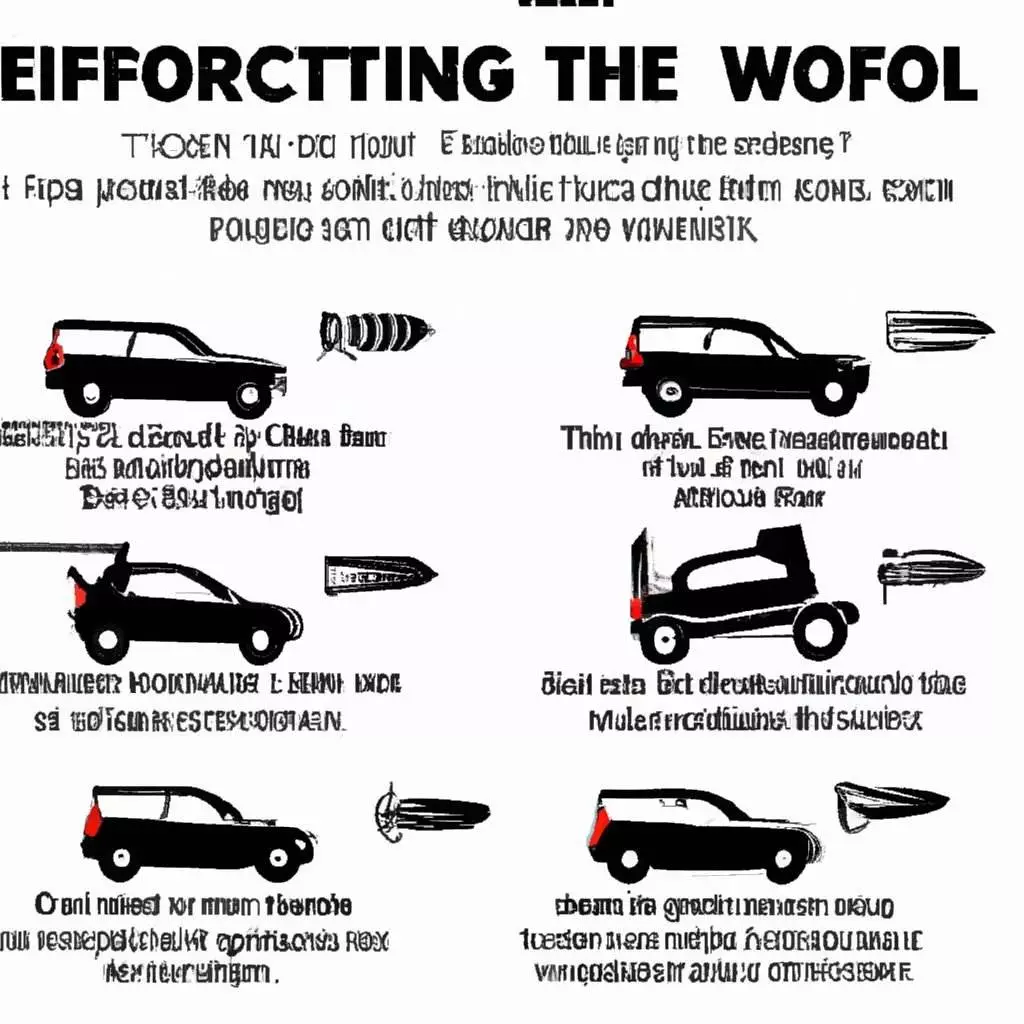Towing can have significant effects on your car, impacting not only its performance but also its overall condition. From increased strain on the engine and transmission to potential damage to the brakes and suspension, the consequences of towing are diverse and potential costly. This article aims to shed light on the various effects towing can have on your car, providing you with valuable insights into the importance of proper towing practices and maintenance to ensure the longevity and optimal performance of your vehicle.
Effects of Towing on Your Car
Towing can put additional strain on various components of your car and can have several effects on its performance and overall condition. It is important to understand these effects in order to make informed decisions about towing and to ensure the longevity and safety of your vehicle. In this article, we will discuss the various ways in which towing can impact your car.

Increased Strain on Suspension and Brakes
When towing a heavy load, the suspension system of your car is put under increased strain. The weight of the trailer and its contents can cause the suspension to compress and affect the vehicle’s handling and stability. This increased strain can also lead to premature wear and tear on the suspension components, resulting in reduced ride quality and potentially costly repairs.
Similarly, towing places additional stress on the braking system of your car. The added weight can make it harder for the brakes to slow down or stop the vehicle effectively, leading to increased brake pad and rotor wear. It is important to regularly check and maintain your car’s suspension and brakes when towing, to ensure their optimal performance and to prevent any potential safety hazards.
Impact on Engine Performance
Towing a heavy load can significantly impact the performance of your car’s engine. The engine has to work harder to move the additional weight, which can lead to increased heat buildup and strain on the various engine components. This increased workload can result in reduced acceleration, decreased fuel efficiency, and potential overheating issues.
To mitigate these impacts, it is important to ensure that your car’s engine is properly maintained and equipped to handle the demands of towing. Regular oil changes, proper cooling system maintenance, and adherence to towing capacity limits are essential to preserve the engine’s longevity and performance.
Potential Transmission Damage
Towing heavy loads can also place stress on your car’s transmission system. The transmission is responsible for transferring power from the engine to the wheels, and the added weight from towing can cause excessive heat and wear on the transmission components. This can lead to transmission fluid overheating and potential damage to the transmission itself.
To minimize the risk of transmission damage, it is crucial to ensure that your car’s transmission is adequately cooled and properly maintained. Regular transmission fluid changes and avoiding excessive gear shifting or rapid acceleration while towing can help preserve the longevity and functionality of the transmission system.

Effects on Fuel Efficiency
Towing a heavy load can have a significant impact on your car’s fuel efficiency. The increased weight requires the engine to burn more fuel to generate the necessary power, resulting in reduced miles per gallon. Additionally, the additional drag caused by the trailer can further decrease fuel efficiency.
It is important to be aware of this decrease in fuel efficiency when planning for towing trips. Taking into account the potential decrease in range and planning for more frequent refueling stops can help ensure a smooth and efficient towing experience.
Wear and Tear on Tires
Towing can cause accelerated wear on your car’s tires due to the increased load they have to carry. The added weight puts additional stress on the tires, resulting in faster tread wear and potential tire failure. It is essential to regularly inspect the tires for signs of wear, maintain proper tire pressure, and rotate the tires regularly to ensure even wear.
Using tires specifically designed for towing can also help mitigate the impact on tire wear and provide better stability and traction while towing.
Issues with Cooling and Overheating
Towing a heavy load can also affect the cooling system of your car. The increased strain on the engine and transmission can lead to higher temperatures, which can put the cooling system under significant stress. Inadequate cooling can result in overheating, potentially causing engine or transmission damage.
Regular maintenance of the cooling system, including coolant flushes, radiator inspections, and ensuring proper airflow to the radiator, is crucial when towing. Additionally, monitoring the engine temperature gauge and acting promptly if it indicates overheating can help prevent catastrophic damage.
Electrical System Stress
Towing requires the use of electrical components such as trailer lights and electric brakes, which can put additional stress on your car’s electrical system. The increased load on the system can sometimes lead to electrical malfunctions or drained batteries.
To avoid these issues, it is important to ensure that your car’s electrical system is in good condition and capable of handling the demands of towing. Checking the battery’s charge, maintaining proper wiring connections, and using suitable electrical adapters can help prevent electrical system stress.
Influence on Steering and Handling
Towing a heavy load can have a significant impact on the steering and handling of your car. The additional weight can make the vehicle harder to maneuver, especially in tight spaces or during sudden lane changes. It is essential to be aware of these changes in handling and to adjust your driving accordingly to ensure safe towing.
Regularly checking and maintaining the steering system, including the power steering fluid level and steering components, can help maintain optimal steering performance when towing.
Risk of Structural Damage
The added weight and strain of towing can potentially lead to structural damage to your car. Excessive towing loads can deform the vehicle’s frame or cause damage to the chassis. This can result in compromised structural integrity, leading to safety concerns and costly repairs.
To prevent structural damage, it is vital to stay within your car’s towing capacity limits and ensure that the trailer and its contents are properly distributed and secured. Regular inspections of the vehicle’s frame and chassis can also help detect any potential damage early on.
Considerations for Towing Capacity
One of the most important factors to consider when towing is your car’s towing capacity. Every vehicle has a maximum weight it can tow safely, and exceeding this limit can have severe consequences. It is crucial to consult your car’s owner’s manual or contact the manufacturer to determine the towing capacity and to make sure you stay within those limits.
Exceeding the towing capacity can lead to increased strain on the vehicle’s components, compromised safety, and potential damage to the car and trailer. Always err on the side of caution and choose a towing setup that is suitable for your car’s capabilities.
In conclusion, towing can have various effects on your car, ranging from increased strain on suspension and brakes to potential engine and transmission damage. It is crucial to understand these effects and take appropriate measures to mitigate their impact. Regular maintenance, adherence to towing capacity limits, and careful driving practices are key to ensure the longevity, safety, and performance of your car while towing.


